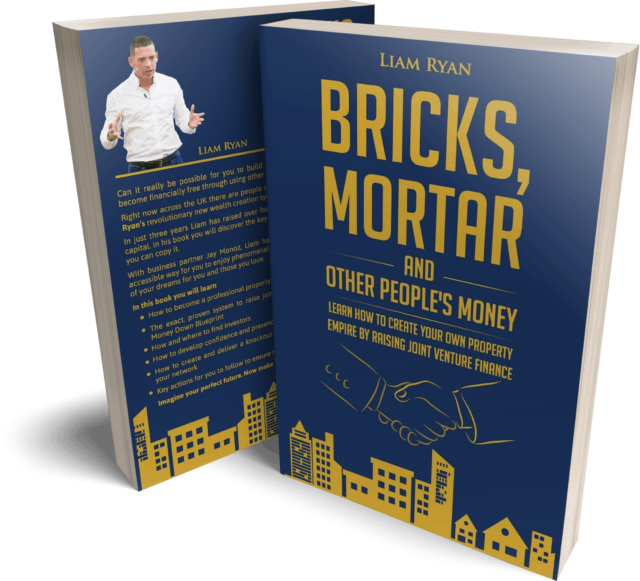Discover the best UK cities to invest in property in 2026, with strong rental demand, high yields, regeneration and growth potential.
Read More
Here is a classic question that we often encounter among aspiring investors – property or stocks?
Table of Contents
ToggleNow, we will say it outright that there is no right or wrong answer to this. The decision on where to put your money is entirely up to you. After all, many people have made a fortune by taking either of these two paths.
However, there are pointers we can provide to help you decide objectively and without any bias. Regardless of which investment type you would go for, remember that your success will depend more on how well you have prepared for it.
To anyone who is just starting out in the business, the best investment is knowledge.
Investing in stocks does have some very obvious advantages. This is why a 2020 survey showed that one-third (33%) of people in the UK own a share in the stock market. However, this also comes with risks that you will need to consider.
Advantages of stock investment
The biggest factor as to why so many people invest in stocks is simple – it’s because they can. If you know your way around the market, you can find investment opportunities as small as £25 each month.
You just have to keep in mind that your ROI is also dependent on the amount you put out. Still, having no minimum amount means you are able to start with less risk and increase your investment budget gradually as your confidence grows.
Most investors would probably tell you that the biggest advantage of stock investment is its liquidity. Liquidity refers to how easily you can convert your asset into usable cash without diminishing its market value.
With stocks, this is a fairly quick process. You can sell your share today and have them ready as cash the following morning.
Though this is recommended to more advanced investors, you can also add a layer of protection to your investment by distributing your assets to different market segments. This is something that is easy to do with stocks. You may channel funds to multiple industries, reducing your risk of losing everything all at once if ever one market dives down.
Disadvantages of stock investment
Stock investment’s biggest disadvantage is its subjection to changes in market pricing. The value of an asset can change on a daily basis. This means that there is an ever-present risk that your investment can depreciate in value. In some very unfortunate circumstances, investors can lose their assets entirely.
Read our previous article on this topic, 11 Action Steps in a Volatile Market.
Real estate is known to many finance professionals as a relatively stable market. Since land and houses are things that will always be essential to people, we can always expect the value of real estate to increase.
Fifty years ago, a property that cost £49,333 is priced today at £278,436. That is an average increase of 9.3% each year according to studies.
This year alone, recent data from the Land Registry Office revealed that prices of properties in the UK had a nationwide average jump of 13.2%.
However, property investments can have some downsides too. Make sure that you consider these factors before making your decision.
Advantages of property investment
While stock prices rise and fall like unpredictable ocean tides, the value of properties is on a gradual yet consistent positive trend. This is because there is an ever-present demand for land and housing.
Being a stable market allows you to retain and even increase the value of your asset, especially during periods of high volatility, inflation, and economic recessions.
Aside from its appreciation, your property can also generate income when you utilize it as a business. Leasing it as a Serviced Accommodation or Rent-to-Rent are some of the recommended strategies.
Some people might say that property investment requires a big capital which makes it less ideal for starting investors. While having a substantial initial fund is definitely an advantage, you can still invest in properties even if you don’t have thousands in your bank account.
Through Crowd Sharing, you can start with as little as £100 or even lower. Leveraging funds is also a common method wherein you can purchase a property using borrowed capital while increasing your ROI over time.
If you convert your property into a business, you can also benefit from numerous tax advantages. Operational expenses such as the cost of managing and maintaining the property are excluded from taxes in the UK.
An obvious advantage of real estate vs. stocks is that it is a physical asset. Until you pull it out as cold cash, your stock share will be nothing but digits on a chart but property can be used as a personal residence, commercial space, a storehouse, ad space, agricultural land, and more.
Disadvantages of property investment
Properties have lesser liquidity. Unlike stocks, it will take at least a month before you can sell a property and convert its value into usable cash. The process will involve sourcing for a buyer and possibly getting help from an agent, as well as processing papers.
Because it is a physical asset, properties require regular maintenance which, of course, entails some work and expenses on your end. However, this is necessary to retain and even increase its market value. Therefore, it can also translate into ROI later on.
If you decide to use the property as a rental business, you also have to be ready for the cost of operating it. This would involve marketing, providing in-house services, turnover, and possibly hiring a rental management agency.
Before you go…
If you are an aspiring real estate investor, then you are doing the right thing by learning and equipping yourself with the right-knows.
To help you further, get a copy of our FREE Guide on how to invest wisely in a volatile market.
Discover the best UK cities to invest in property in 2026, with strong rental demand, high yields, regeneration and growth potential.
Read MoreThinking of selling your buy-to-let? Learn how to time the market, manage tax and maximise equity with expert landlord advice.
Read MoreDiscover UK planning permission loopholes, permitted development rights and when you can extend, convert or renovate without consent.
Read MoreLearn what the Bank of England base rate is, how it’s set, and how changes can impact buy-to-let mortgages and property investors.
Read More
Claim Your Free Copy
Assets For Life LTD is a company incorporated in England and Wales with registered number 09935286 and registered offices at Assets for Life Ltd, Suite 105, Waterhouse Business Centre, 2 Cromar Way, Chelmsford, Essex, England, CM1 2QE, United Kingdom.
Assets For Life LTD is registered with the Information Commissioner’s Office, with registration number ZA280607
COPYRIGHT © 2024 ASSETS FOR LIFE, ALL RIGHTS RESERVED. WEBSITE BY AMPLIFY MARKETING